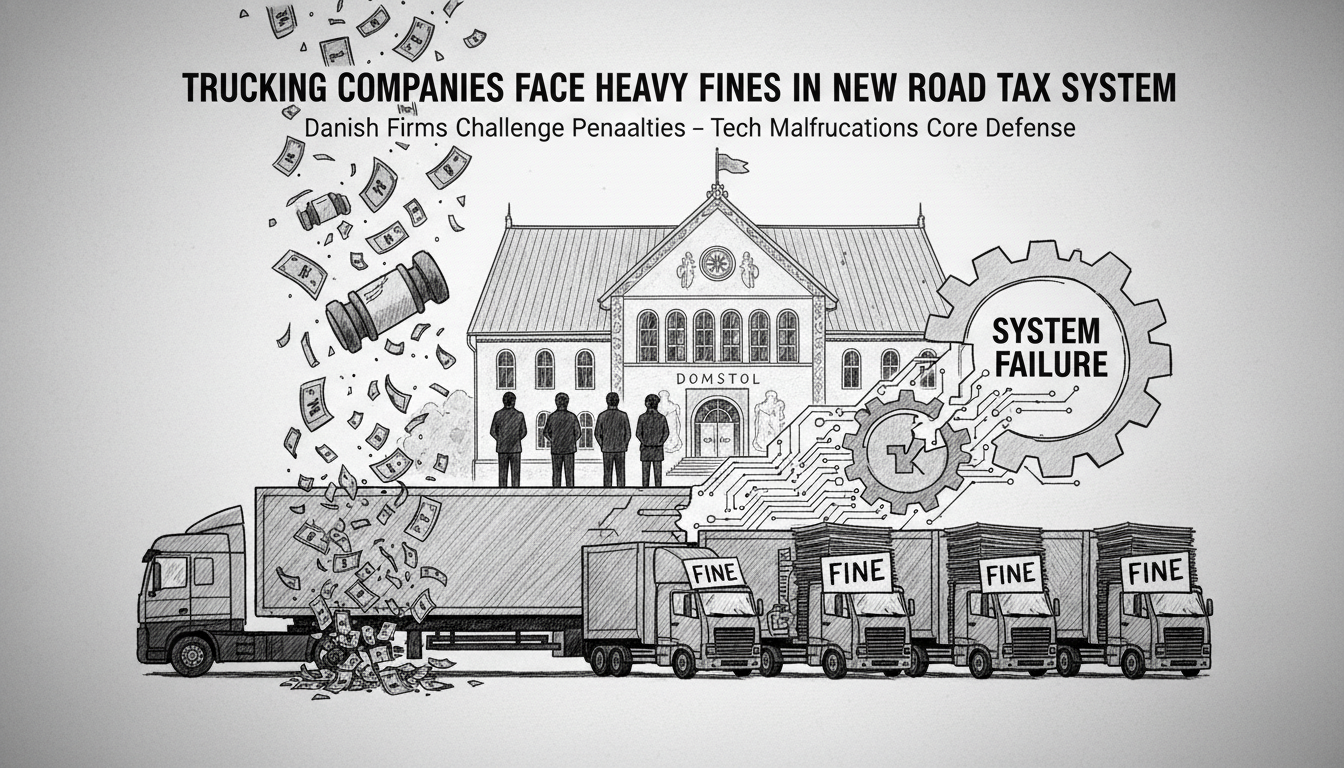Danish trucking companies received over 40,000 fines since the new year began. The penalties stem from a kilometer-based road tax system implemented earlier this year. Authorities issued 40,916 fines between January and September's end.
The new system requires truck operators to pay based on distance traveled. Those who fail to pay face automatic fines of 9,000 Danish kroner each time. The system aims to fund road maintenance through direct usage charges.
Four trucking companies now challenge their fines in a landmark case. Aalborg Court will hear their arguments on November 28. This marks the first legal test of Denmark's new road taxation framework.
The companies claim they installed required satellite tracking equipment. They argue technical complications prevented proper system operation. Their defense centers on good faith compliance efforts despite technical failures.
Denmark's transport sector modernization reflects broader Nordic trends. Sweden and Norway implemented similar road pricing systems previously. The Danish approach builds on regional experiences with usage-based taxation.
International logistics companies operating in Denmark face particular challenges. The system requires understanding complex local regulations and technical requirements. Foreign operators must navigate both equipment installation and payment procedures.
Legal experts watch the Aalborg case closely. The outcome could influence similar systems across Northern Europe. A ruling favoring trucking companies might force system adjustments.
The high number of fines suggests widespread implementation difficulties. Nearly 41,000 penalties indicate significant system adaptation challenges. Both technical issues and understanding gaps appear contributing factors.
Danish authorities maintain the system functions as intended. They argue the fines demonstrate enforcement effectiveness. The revenue supports critical infrastructure maintenance across the country.
Trucking industry representatives express concern about the financial impact. Multiple fines can severely affect smaller operators. Some companies face potential bankruptcy from accumulated penalties.
The case highlights balancing technological advancement with practical implementation. While satellite tracking offers precise taxation, technical reliability remains crucial. The court must decide whether system failures justify penalty forgiveness.
What does this mean for Denmark's green transition? Road pricing aims to encourage efficient transportation planning. Properly implemented, it could reduce unnecessary mileage and emissions.
The November court decision will provide crucial clarity. Both transport authorities and trucking companies await guidance on compliance standards. The ruling could reshape Denmark's commercial transportation landscape.

